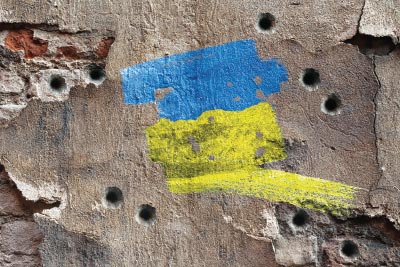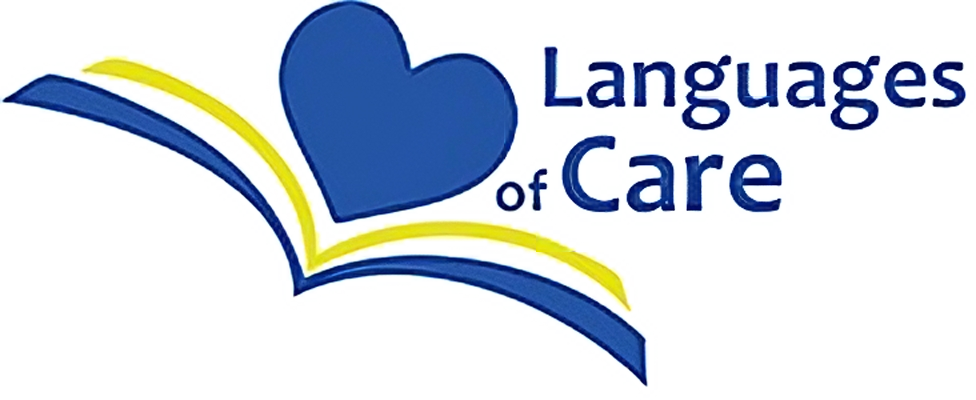FAQ
Languages of Care is a US-based not-for-profit organization (501c3) that brings together translators, psychologists, psychiatrists, social workers, peers, writers, editors, and web designers from around the world to provide translations of publicly available emotional health content to survivors, relief workers, and medical and mental health practitioners.
Our team leverages and multiplies the skills of our volunteers to make urgent, life-saving documents available to caregivers, freeing the time that can be spent on patient care. Each document is carefully reviewed for cultural and clinical accuracy by our editors and accredited experts.
We’ve completed hundreds of thousands dollars worth of translations (hundreds of individual documents!) relying on the goodwill and skills of our volunteers and paid contributors. All translations are posted here and disseminated to responders and original content providers for immediate use at no cost.
We’ve made use of generous contributions of our supporters (such as the American Psychiatric Association Foundation and Trello Team as well as individual donors) to pay per diems for teams working in disaster impacted environments. We need your support to keep this effort going!
LoC stands for Languages of Care – because no one should struggle to understand a caring word!
We select texts about various aspects of dealing with disasters, translate them into the languages of impacted communities and use local contacts to share the translations. All our translations are edited and then reviewed by bilingual clinical experts to make sure they have all the clinical nuances of the original and are culturally and clinically relevant.
We are making content available in as many languages as possible. Doing so is freeing up the time for caregivers and allows for better self-care. Having content available timely promotes access to care, decreasing suffering after disasters. We are continuously building our library to try and get ahead of urgent needs.
You can use the feedback form. We are always open to suggestions!
Our translators and editors typically do this work professionally. Our clinical reviewers – are practicing clinicians with at least college level fluency in both “source” and “target” languages. We also hope that engaging more clinicians can help drive familiarity with this content before disaster strikes. Whenever possible – we use the donated volunteer time to get the work done. However, whenever we are able – we use any raised funds to pay for the work to translators in the very communities we are trying to assist.
Whenever possible – we use the donated volunteer time to get the work done. However, whenever we are able – we use any raised funds to pay for the work to translators in the very communities we are trying to assist. Having funds on hand allows for a significantly faster translation availability and ability to take on more extensive and time sensitive content.
Please write to us. We are always looking for more translators, editors, and reviewers. Be sure to include your languages, clinical background (if any) and level of translation experience and expertise (if any).
We came together out of desire to assist all people impacted by disasters. Here is a bit more of the backstory:
The APA Foundation awarded $20,000 to Languages of Care, which has been providing translated mental health resources to refugees and mental health professionals in Ukraine since the start of the war with Russia.

According to the United Nations, as of August 12, over 6.6 million people remained displaced within Ukraine due to Russia’s invasion, and there are an estimated 6.3 million refugees across Europe.
“These are people who have had to leave their homes and everything behind in a desperate attempt to escape death and destruction,” the United Nations said in a May news release. “They are traumatized and need urgent protection, including psychosocial support.”
Since the beginning of Russia’s invasion of Ukraine, the U.S.-based nonprofit Languages of Care has been working to support mental health professionals on the ground with translations of high-quality, evidence-based mental health and emotional wellness documents. The APA Foundation recently awarded Languages of Care a $20,000 multiyear grant from its Ukraine Disaster Relief Fund to support this work and ensure survivors have access to resources to support their mental and emotional well-being.
Languages of Care was launched in response to the uprising in Belarus two years ago, said co-founder, CEO, and Chief Medical Officer Sander Kofyman, M.D., M.B.A. Koyfman is also the chief medical officer at Athena Psych, a clinic in New York City, and is the immediate past president of Disaster Psychiatry Outreach, now a part of Vibrant Emotional Health.
When Russia invaded Ukraine, the organization jumped in to help. Koyfman and his team realized that there is a wealth of available information on trauma and disaster response in English from credible sources—such as the Centers for Disease Control and Prevention and the Center for the Study of Traumatic Stress at the Uniformed Services University—that can be translated into other languages to help people directly impacted by disasters. Languages of Care’s volunteers began translating these vital documents into Ukrainian, Polish, Russian, and Romanian. Each document goes through a clinical review during the translation process, as well.
“Within three weeks, we grew from six volunteer translators to over 160,” Koyfman said. “It has been an incredible response. Some of our volunteers are in Ukraine and other countries of former Soviet influence. They’ve done the enormous job of translating these materials and working with our clinicians to ensure the documents have the most accurate clinical and cultural representation possible.”
Web links to the documents have been sent to thousands of therapists practicing on the ground, and printouts have been distributed to over 30,000 evacuees by Languages of Care’s partner organization, Ukraine Friends.
Koyfman said that Languages of Care is working to expand, translating documents into multiple languages so the organization can pivot rapidly and respond wherever disasters occur. They are working on a “go kit,” which will have a core set of essential documents available almost immediately when the need arises anywhere in the world. Recently, the organization partnered with Respond Crisis Translation Team to expand its language portfolio by adding French and Haitian Creole to respond to the need in Haiti.
Typically, in response to disasters, organizations work together to support victims and ensure they have housing, food, and other critical necessities, said APA Foundation Executive Director Rawle Andrews Jr., Esq. “But all too often, mental and behavioral health care are left out, even for those who are directly in harm’s way.” The APA Foundation is proud to work with organizations like Languages of Care to help to fill this gap and grow awareness to these critical needs in times of crisis, he said.
“I cannot emphasize enough how important and inspiring it is that the APA Foundation has recognized our effort and become the first foundation to support us,” Koyfman said. “This grant is enormously impactful. It will help maintain our momentum and allow us to build this into something that we can sustain as we are building our team of multilingual clinical reviewers.”
The APA Foundation was connected with Languages of Care through Joshua Morganstein, M.D., chair of the APA Committee on Psychiatric Dimensions of Disasters. Koyfman said the Committee on Psychiatric Dimensions of Disasters has helped Languages of Care identify the documents that should be included in the go kit, as well.
“Delivering mental health resources directly to the people of Ukraine in their own native language is tremendously important work,” said Saul Levin, M.D., M.P.A., APA CEO and medical director and chair of the APA Foundation’s Board of Directors. “The APA Foundation’s grant to Languages of Care will have a direct impact on those in need and ensure they have access to evidence-based, culturally sensitive resources.”
There are numerous ways psychiatrists can get involved with Languages of Care, Koyfman said. Donations are always needed, and clinicians with trauma and crisis expertise can also provide input on what documents should be included in the go kit. Additionally, anyone with college-level reading and writing expertise in a foreign language can contribute by proofreading documents that have been translated, as each document must be proofread by a practicing clinician. According to the Languages of Care website, there is an urgent need for clinicians with Polish/English and French/English proficiency.
“Trauma, isolation, and stigma are all worsened by the inability to communicate effectively,” Andrews said. “When Languages of Care steps in with support from organizations like the APA Foundation, they’re able to reach people who are directly impacted when they are experiencing the greatest need so they do not need a translator. They can receive help directly in a language they understand.” ■
The documents are suggested by providers in the field, experts from the American Psychiatric Association Committee on Psychiatric Aspects of Disasters, Group for Advancement of Psychiatry and Group for Advancement of Psychiatry members as well as many others. These suggestions are reviewed by our Chief Medical Officer and the Clinical Advisory Board. Upon completion, we share the translations with our local partners and the groups that originally created the texts.
Our biggest difference is in our verification process. Every document is reviewed by editors and clinicians to make sure it is both clinically and culturally appropriate. But – if you know someone who does this work and does it better – we would be only too happy to partner! Please, let us know and we will gladly reach out and support their work as well.
The first crisis we responded to was the war in Ukraine, so we focused on the languages spoken by the refugees and the languages of countries that saw the largest influxes of refugees. As new disasters strike – we work to expand to additional languages such as Haitian Creole, Turkish, Arabic, French and others. We believe care has no bounds.
We ask for donations and apply for grants. We do a lot of work for free. We ask for your support because this work is necessary, time consuming and is always incredibly rewarding. But, disaster response related work is also taxing, can lead to burn out and is not for everyone. Whenever possible – we try to pay our contributors fair wages for fair work. Please, help us do so!
We’d like to believe that all of them find their audience. But we encourage you to take advantage of self-care content you can find in our Documents library – for example a “Self-Care Action Plan” from Vibrant Emotional Health.
Volunteering with LoC is an amazing experience, if we say so ourselves. You will be directly helping people affected by disasters, and you will be a part of a supportive community. Volunteering has been shown to have benefits for the people engaged in this work.
